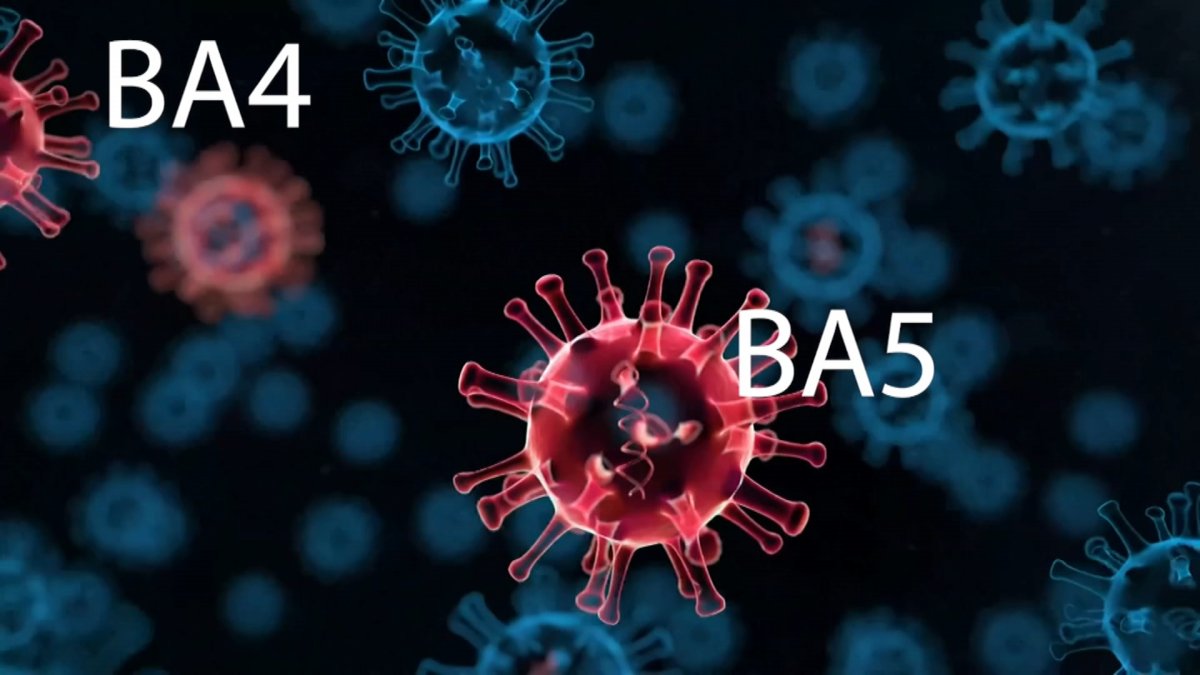
Two highly-transmissible mutations of the omicron COVID-19 variant are gaining traction across the country, including in the Chicago area, leading some doctors to recommended the use of face masks indoors once again.
Two highly-transmissible mutations of the omicron COVID-19 variant are gaining traction across the country, including in the Chicago area, leading some doctors to recommended the use of face masks indoors once again.
The BA.4 and BA.5 subvariants now account for the majority of new COVID cases in the U.S., according to health officials. As of July 2, the subvariant BA.5 was responsible for nearly 54% of COVID cases. BA.4 accounted for nearly 17% more, data from the Centers for Disease Control and Prevention showed.
David Montefiori, a professor at the Human Vaccine Institute at Duke University Medical Center, told NBC News that BA.4 and BA.5 are about three times less sensitive to neutralizing antibodies from existing COVID vaccines than the original version of the omicron variant, BA.1. Additional research suggests that BA.4 and BA.5 are four times more resistant to antibodies from vaccines than BA.2.
When it comes to symptoms, runny nose, sore throat, headache, fatigue and persistent cough appear to be most common of the fastest-spreading variants, according to Dr. Jonathan Martin, an infectious disease physician with Cook County Health.
Feeling out of the loop? We'll catch you up on the Chicago news you need to know. Sign up for the weekly Chicago Catch-Up newsletter here.
This past week, Cook County moved out of "high" COVID community level risk, the highest of three levels classified by the CDC's community level status map. According to the most recent data, only two Chicago-area counties - DuPage and Lake - are still at "high."
"The issue now is the tests are not reported to the health department, so the numbers the health department is getting right now don’t necessarily reflect the number of COVID cases out there," Martin said.
If you're vaccinated and are taking precautions, like wearing a face covering and regularly washing your hands, contracting COVID is still possible.
"...If you are recently infected with omicron or if you have the vaccine, these variants are particularly good at causing a breakthrough infection or another infection," the doctor explained. "However, the vaccines are still holding up..."
Along with BA.4 and BA.5, another new variant is leading to even more concerns.
BA.2.75, as the variant is named, may be able to spread rapidly and get around immunity from vaccines and previous infection, according to doctors. It’s unclear whether it could cause more serious disease than other omicron variants, including BA.5.
"It came out of India...now starting to pop up all across the world," said Dr. Davey Smith, head of infectious diseases and global public health at the University of California San Diego. "The variant has some concerning properties - has about eight or nine mutations in spike protein."
The best way to protect yourself and your family, according to Martin, is to get vaccinated and boosted.
He has also urged people to start wearing face masks again as the subvariants spread and new cases surface.
"It is still spread by the same route, so in order to stay healthy, people should still wear a mask indoors, especially in large gatherings of people," he said.
Vaccine makers are working to update COVID shots to specifically target the new subvariants. The Food and Drug Administration estimates the vaccines will be available in the early to mid-fall.